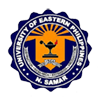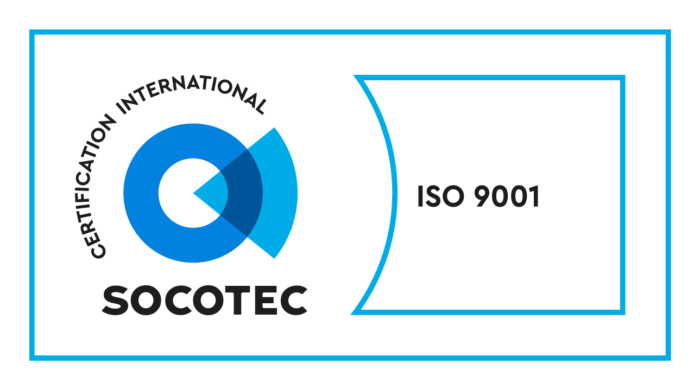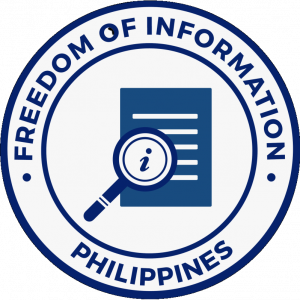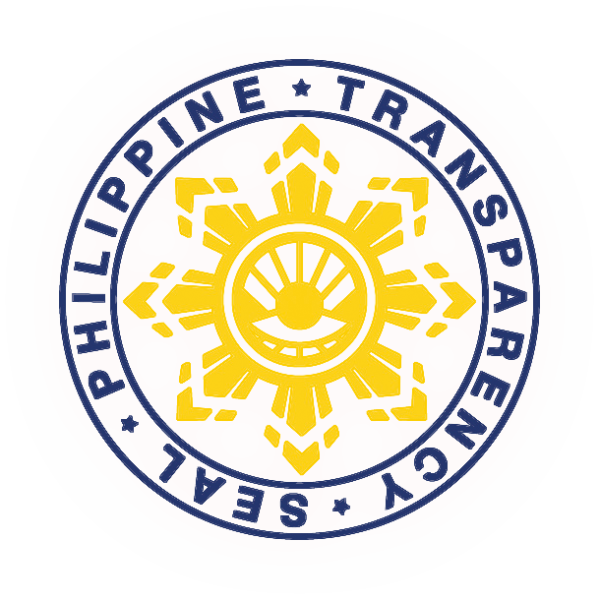COLLEGE OF ARTS AND COMMUNICATION

History
The College of Arts and Communication (CAC) started out as Liberal Arts in 1962 providing liberal education in courses offered by then Samar Institute of Technology (SIT). The conversion of SIT into the University of Eastern Philippines in 1964 by virtue of Republic Act No. 4126, led to the opening of the College of Arts and Sciences (CAS) in 1962 with Atty. Tomas V. Guiang as its first dean. The first course offered was Bachelor of Arts major in Political Science. The following year enrollees in Bachelor of Arts major in Sociology were admitted. Two years after, in 1968, the CAS had turned its first batch of political science graduates composed from other courses and transferees from other schools. In 1970, AB Major in English, Pre-Nursing and BS in Nursing were offered by the College. New courses followed: Bachelor of Science in Community Development (BSCD) in 1976, and Bachelor of Science in Zoology (BS Zoo) in 1979.
In 1985, the CAS was made a University College and consequently departmentalization took place to respond to the enormous function of providing general education in all courses offered in the University. The departments created were the Department of Biological Sciences, the Department of Languages, the Department of Physical Education, and Department of Social Sciences.
In 1988, Bachelor of Arts major in English was revised to Bachelor of Arts major in Language and Literature Teaching.
The CAS nurtured two colleges in their fledging years: the College of Law in 1992 and the College of Nursing in 1994 until their respective deans were designated in 1993 and 1995, respectively.
A series of Curriculum revisions were made before and after the RQAT visit and were submitted to CHED for notations. Excerpts from the Minutes of the 259th (4th QUARTER, CY 2018) regular meeting of the UEP Governing Board held on December 18, 2018 at the Commission on Higher Education, HEDC BLDG., C.P. Garcia Ave., U.P. Campus, Diliman, Quezon City. “ Resolution No. 120, S. 2018” Provisional Approval of the Revised Curricular Programs of the College of Arts and Communication Effective Academic Year 2018-2019 Pending Review by CHED Regional Office No. VIII as recommended by the University Academic Council during its 171st meeting held on March 13, 2018 per Resolution No. 9, S. 2018, to wit: Bachelor of Arts in Political Science, Bachelor of Arts in Sociology, Bachelor of Arts in Literature, Bachelor of Arts in English, Bachelor of Arts in Public Administration, Bachelor of Science in Criminology, Bachelor of Science Development Communication, Bachelor of Science in Community Development. Excerpts from the Minutes of the 259th (4th QUARTER, CY 2018) regular meeting of the UEP Governing Board held on December 18, 2018 at the Commission on Higher Education, HEDC BLDG., C.P. Garcia Ave., U.P. Campus, Diliman, Quezon City “Resolution No. 126, S. 2018” Approving the appeal to proceed with the enrollment of students this 2nd Semester, Academic year 2018-2019 for those curricular programs still undergoing review by CHED Regional office No. VIII. Thus, the preparation of the documents made by our faculty for the Preliminary Survey Visit held last July 2019 of Master of Science in Community Development of the Graduate School. The College of Arts and Communication had also a Level III Phase I Accreditation Survey Visit held last October 22-26, 2019 for AB Public Administration was participated by the Core Faculty and other key faculty member who had also its preparation of documents and fortunately AB Public Administration passed the Level III Phase 1 accreditation by AACCUP accreditors. The RQAT Visit by CHED National Office for Bachelor of Science in Community Development for its application for Certificate of Program Compliance.
At present, the College of Arts and Communication is headed by Dr. Maria Alfe G. Banawis who was designated as Dean of the College after the evaluation by the Search Committee and selected by the UEP Board of Regents per Resolution No. 72, S. 2018, last October by 2018 with Special Order No. 197, s. 2018. With Dean Banawis administration she is encouraging faculty members to do research and extension activities aside from the fact that instruction and production should also be given emphasis for the continual Development of the college thus providing students with quality education honing them to have a refined attitude for them to be better citizens of the society.
With the able leadership of the new UEP President Dr. Cherry I. Ultra, the College of Arts and Communication is extending its full support to her administration as College of Arts and Communication aims for better UEP where the spirit of teamwork among faculty is always there for the development of the college.
College Goals
1. To promote the mental and physical well-being of the learners through the liberal disciplines.
2. To foster awareness of the ethical and social significance of, as well as responsibility in the use of interpersonal communication and mass media.
3. To give the learners a strong sense of fulfillment and concern for the development of their community and country through:
a. the understanding and promotion of harmonious relations with their own selves, with others, and the world;
b. the acquisition of the ability to think logically and critically and communicate effectively;
c. the appreciation of their role as productive citizens, agents of change, guardians of cultural heritage and protectors of the ecosystem;
d. the acquisition of skills for problem-solving, decision-making and planning and dynamic leadership; and
e. the development of a spirit of self-reliance, national consciousness and sense of service to humanity.
Curricular Programs
Bachelor of Arts in English Language
Bachelor of Arts in Literature
Bachelor of Arts in Political Science
Bachelor of Arts in Public Administration
Bachelor of Arts in Sociology
Bachelor of Science in Community Development
Bachelor of Science in Criminology
Bachelor of Science in Development Communication
Academic Information
Academic Year
The Academic Years is divided into two semesters of 18 weeks each or 54 hours for each course every semester/term.
Curricular Offerings
General Education Program (Languages, Social Sciences, and Physical Education; CHED-mandated general educated courses)
Bachelor of Arts, major in Literature, Bachelor of Arts in English Language; Bachelor of Science in Development Communication; Political Science, Sociology; Public Administration; Bachelor of Science in Community Development, and Bachelor of Science in Criminology.
Faculty and Staff Profile
Atty Jayvee Wilfred C. Baya, DPA
College Dean
Announcements
Events
Researches
Extension Projects
Program Outcome
BACHELOR OF ARTS IN
ENGLISH LANGUAGE PROGRAM OUTCOMES:
1. Articulate a comprehensive and contextualized view of the English language system and development.
2. Communicate in English (both oral and written) fluently, accurately, and creatively in diverse social, cultural, academic and professional settings.
3. Facilitate English language learning in diverse social, cultural, academic, and professional settings.
4. Enhance literacy developmental and critical/creative thinking among students through the use of different types of texts.
5. Produce well-written texts for various academic and professional purposes.
6. Participate effectively in oral communication situations where language systems (phonological, morphological, syntactic, semantic) vary.
BACHELOR OF ARTS IN LITERATURE PROGRAM OUTCOMES:
1. Articulate and discuss the latest developments in the specific field of practice.
2. Effectively communicate orally and in writing using both English and Filipino.
3. Work effectively and independently in multi-disciplinary and multi-cultural teams.
4. Act in recognition of professional, social, and ethical responsibility.
5. Preserve and promote “Filipino historical and cultural heritage” (Based on RA 7722).
6. Recognize the need for and demonstrate the ability for lifelong learning.
7. Identify multi-perspectives and interrelations among texts and contexts.
8. Apply analytical and interpretive skills in the study of texts.
9. Discuss and/or create artistic forms and types.
10. Demonstrate research skills specific to the sub-disciplines in the humanities.
11. Use appropriate theories and methodologies critically and creatively.
12. Appraise the role of humanistic education in the formation of the human being and society.
13. Apply close reading of texts, involving analysis and interpretation of a variety of forms, types and genres.
14. Deploy critical perspectives in the analysis and interpretation of texts representing a variety of forms, types and genres.
15. Produce a creative or critical text in one of the genres, forms or types that may be useful to Literature as a discipline as an individual or group work.
16. Categorize literary cultural texts according to geographic areas, cultural/intercultural milieus, types, conventions, movements, and historical periods.
17. With the above-mentioned skills and competence, plan and execute written and non-written projects for careers and undertakings anchored in the discipline of Literature in which Literature graduates are specifically considered competitive and highly qualified such as postgraduate study, research, documentation, publishing, creative work in literary genres as well as in various media, education, and work in higher education institutions.
BACHELOR OF SCIENCE IN
DEVELOPMENT COMMUNICATION PROGRAM OBJECTIVES:
1. Develop a critical understanding of development perspectives and apply social science concepts and theories, to the analysis of social issues – to be able to articulate and discuss the latest developments in the field and develop a communication program/plan;
2. Develop effective communication skills in different formats and platforms (oral, written, print, broadcast, and online), using both English and Filipino, as a linker, networker, and mediator;
3. Demonstrate program management and leadership skills by working effectively and independently in multi-disciplinary and multi-cultural teams and by allowing the public to understand and respond to their world;
4. Know, act, and practice the rights, responsibilities, and accountabilities of the profession in recognition of the professional, social, and ethical standards of social science and communication – Be the standard bearers of media profession;
5. Preserve and promote “Filipino historical and cultural heritage” (based on RA 7722);
6. Develop an ability to participate in the generation, production, sharing, and utilization of new knowledge by designing and accessing information needs, assessing and organizing information and knowledge, designing and executing social development communication researches and projects, aligned to local and national development agenda or goals, guided by appropriate approaches and methods;
7. Integrate technical knowledge in content development and management, to develop entrepreneurial capabilities.
8. Develop and produce multi-media materials.
9. Incorporate principles and constructs of communication in promoting development-oriented interventions taking into consideration local development context with emphasis on agricultural communication and disaster risk communication.
BACHELOR OF ARTS IN POLITICAL SCIENCE PROGRAM OUTCOMES:
1. Develop a critical understanding of development and apply social science concepts and theories to the analysis of social issues- to be able to articulate and discuss the latest developments in the field and develop a communication program plan;
2. Demonstrate program management and leadership skills by working effectively and independently in multi-disciplinary and multi-cultural teams and by allowing the public to understand and respond to their world;
3. Know, act, and practice the rights, responsibilities, and accountabilities of the profession in recognition of the professional, social, and ethical standards or social science;
4. Develop an ability to participate in the generation, production, sharing, and utilization of new knowledge by designing and accessing information needs, assessing and organizing information and knowledge, designing and executing social development communication researches and projects, aligned to local and national development agenda or goals, guided by appropriate approaches and methods.
BACHELOR OF PUBLIC ADMINISTRATION PROGRAM OUTCOMES:
1. Develop public servants with required knowledge, values and skills to serve as professionals in government and civil society;
2. Prepares its graduates for technical and administrative positions in government including the Foreign Service and civil society. It is a good preparation for those interested in taking up law. Graduates can look forward to executive and policy-making positions in government, both elective and appointive, as well as executive and policy-making positions in civil society organization.




